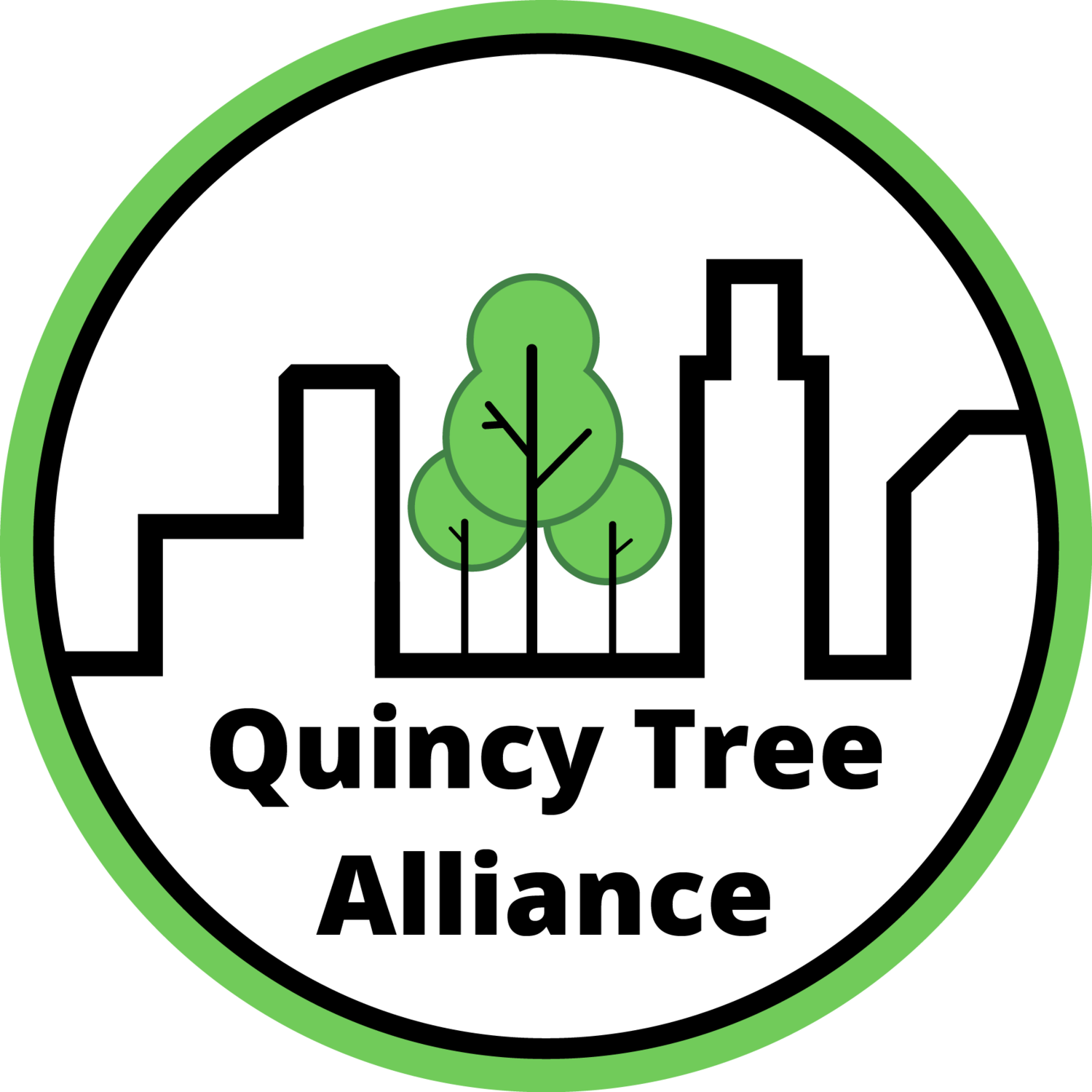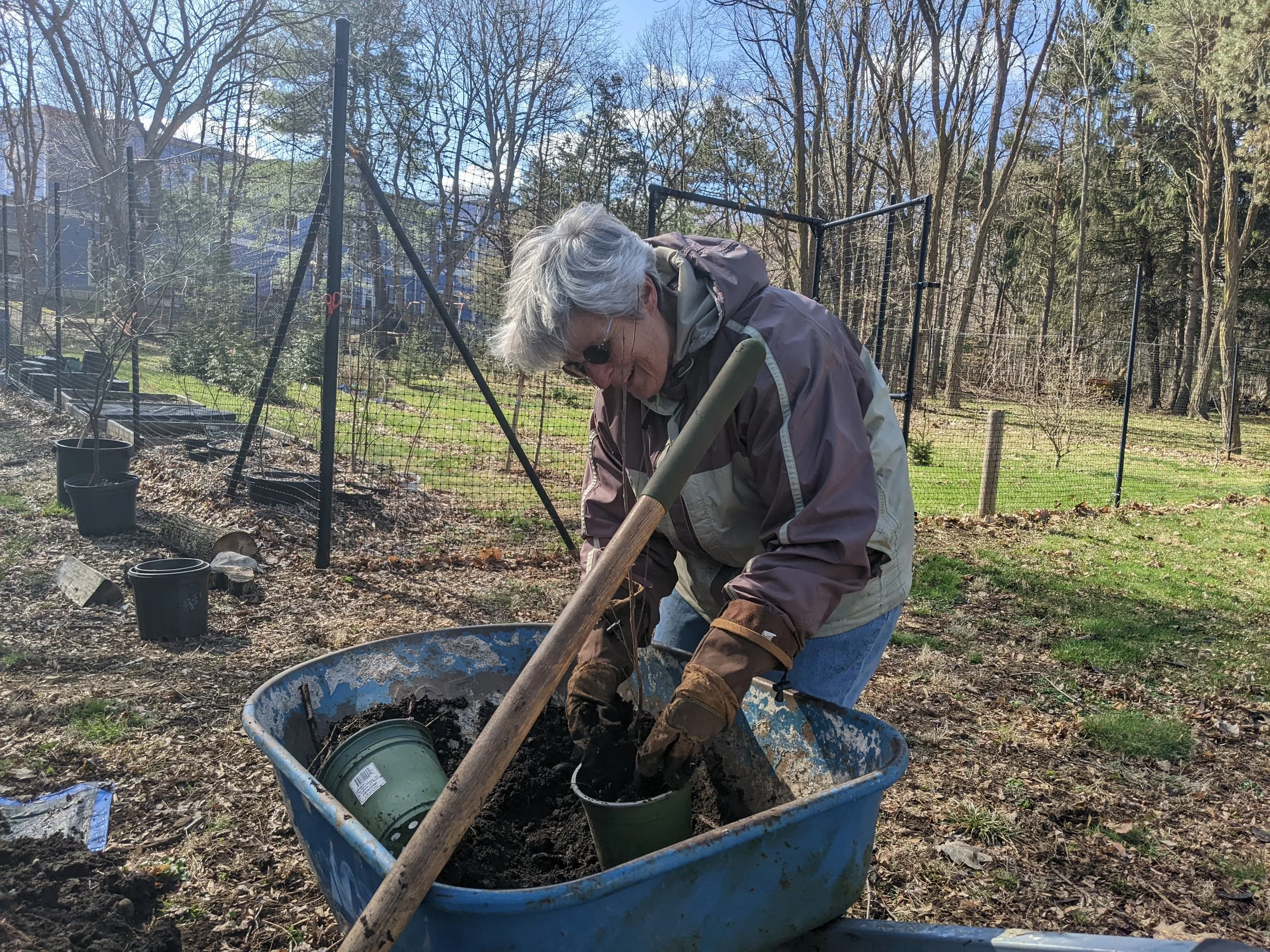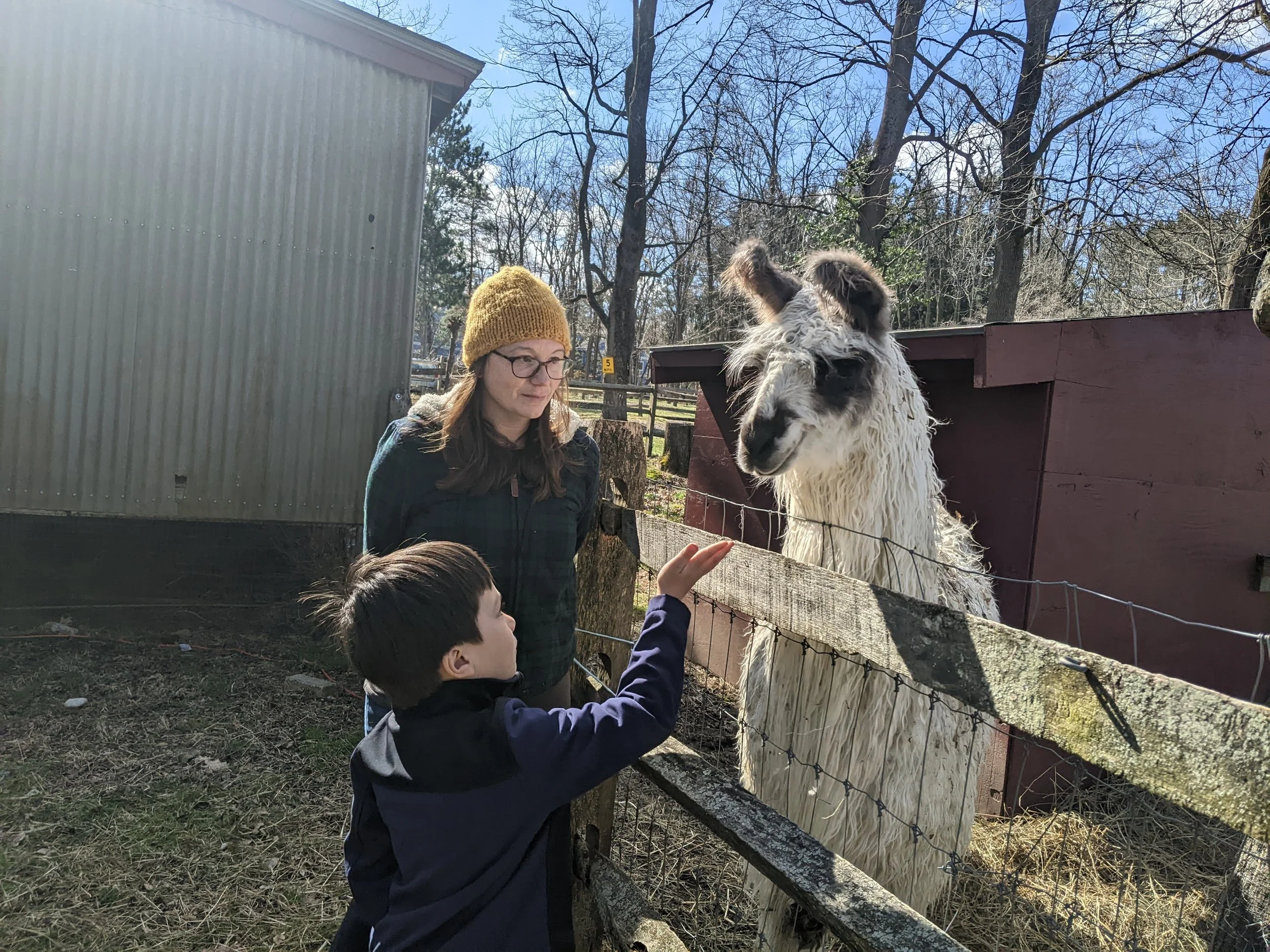Contact us if you’d like a river birch!
We have five river birch saplings to give away from the Blue Hills Climate Action Coalition
Quincy Tree Alliance volunteers potted up dozens of trees at the Wakefield Arboretum (Image: Maggie McKee)
QTA volunteers helped pot up tree saplings for giveaway through the Blue Hills Climate Action Coalition on April 4, 2022. Mark Smith, executive director of the Wakefield Arboretum in Milton, trained us in how to pot up the bare-root trees, and we now have five river birches to donate. Please email quincytreealliance@gmail.com if you’d like to request one!
From the Arbor Day Foundation:
As its name suggests, the river birch naturally grows along riverbanks. But as a landscape tree, it can be planted almost anywhere in the U.S. The species is valued for its relatively rapid growth, tolerance of wetness and some drought, unique curling bark, spreading limbs, and relative resistance to birch borer.
Provides brilliant yellow fall color
Develops a cinnamon-colored bark that curls and peels (once mature)
Is the most borer-resistant birch
QTA member Jocelyn pots up a river birch sapling (Image: Maggie McKee)
The Wakefield Arboretum has more than just trees! (Image: Maggie McKee)
Which are the leafiest neighborhoods?
Urban trees provide economic, social, environmental, and health benefits, but how do we ensure every community has the canopy they need? Join the Quincy Tree Alliance and the Thomas Crane Public Library for an online discussion on tree equity on February 15 at 7 pm
Brown areas are less leafy than green areas in tree equity maps like this one (Credit: American Forests)
Urban trees provide economic, social, environmental, and health benefits, but how do we ensure every community has the canopy they need? Join the Quincy Tree Alliance and the Thomas Crane Public Library for an online discussion on tree equity on February 15 at 7 pm.
Molly Henry, senior manager of climate and health at American Forests, will introduce the national Tree Equity Score Explorer tool that her organization developed for every urbanized area in the country. The tool shows that wealthier neighborhoods are often significantly leafier than poorer neighborhoods with more people of color. For example, about 50% of Boston’s West Roxbury neighborhood is shaded by trees, while that figure is less than 10% for East Boston. Henry will also go over Quincy’s canopy maps.
David Meshoulam, executive director of Speak for the Trees, Boston, will discuss his organization’s work on tree equity at the local level in Boston. “There are two sides to that tree equity equation,” he says. “One is who has access to trees and the benefits that trees provide. The other, that we’re working towards, is who has access to those workforce jobs in tree care. The work has to come from the community, for the community, by the community. A tree is not something that you plant and walk away from.”
Meshoulam will also briefly discuss legislation now being considered at the statehouse aimed at planting trees in the places that need it most, with the aim of reaching 60% tree canopy cover in Massachusetts cities and towns.
Finally, Quincy’s tree warden, Chris Hayward, will discuss new initiatives aimed at increasing the canopy coverage and tree equity here. One is a plan to offer reduced-cost tree plantings in the front yards of Quincy residents, and the other is a plan to get citizens involved in inventorying the trees here, which will help determine where new plantings are needed. “The inventory, when it’s completed, will be a huge tool,” says Hayward.
After short presentations, speakers will take questions from participants. To join the event, go to https://bit.ly/qtaequity on Feb. 15 at 7 pm, or dial (646) 558-8656 and enter meeting ID 838 7285 6404. You can also watch the event, either live or after the fact, at https://www.youtube.com/c/ThomasCranePublicLibrary.
Quincy Tree Alliance is a volunteer group that works to sustain and expand our city’s tree canopy. To learn more, visit quincytreealliance.com or email quincytreealliance@gmail.com.
Extra! Extra! Quincy residents eligible for free trees
We had a great time with the MA Urban Canopy Project on May 21, placing informational stickies on doors of a North Quincy neighborhood. These stickies explain how residents of North Quincy and Germantown can get FREE TREES planted in their yards!
Door sticky from the MA Department of Conservation and Recreation (Image: Erin Santacroce)
We had a great time with the MA Urban Canopy Project on May 21, placing informational stickies on doors of a North Quincy neighborhood. These stickies explain how residents of North Quincy and Germantown can get FREE TREES planted in their yards! More trees = cooler summers and lower electrical bills, not to mention cleaner air! The stickies are even translated into different languages on the back. Good work @massdcr!
A young tree hugger hangs a sticky on the door of a home eligible for free trees from the state (Image: Erin Santacroce)









